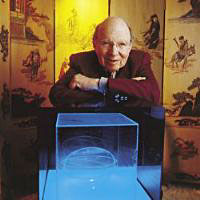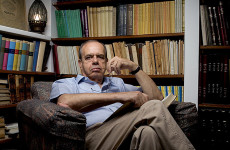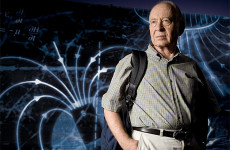
The Emet Prize is awarded to Prof. Yuval Neeman for his pioneering and decisive contribution to deciphering the atomic nuclear structure and its components via algebraic and composite theory methods, and for his tremendous scientific contribution to the development of subatomic physics in Israel.
Prof. Yuval Neeman was born in Tel Aviv in 1925. In 1945, he completed engineering studies at the Technion. He was active in the Haganah and fought on several fronts during the War of Independence. When the war ended he was appointed to senior positions in the General Staff. He retired from the IDF in 1960.
While studying for his doctorate in physics Prof. Neeman made breakthroughs in atomic science concerning the elementary atomic particles from which all matter and radiation is formed when he identified the ordering principle, which determines their properties (unitary symmetry). Upon completing his studies he was appointed science director of the Israeli Atomic Energy Commission. In 1962 he solved the riddle of the emergence of unitary symmetry and showed that it results from the compositeness of the so-called “elementary” particles, with specific constituents (later named “quarks”) representing an additional structural level. He was a member of the Atomic Energy Commission from 1965-1984 and an advisor to the defense minister and the chief scientist at that ministry.
Since 1964, Prof. Neeman has been a researcher at Tel Aviv University, where he set up the School of Physics and Astronomy, initiated the Faculty of Engineering, the Institute for Strategic Studies, the Institute of Space Studies (now the Planetary Sciences Department) and the Wise Observatory near Mitzpe Ramon. In 1971-1975, Neeman served as the President of Tel Aviv University.
His research and contribution to the study of physics and space earned him the Israel Prize, international awards and honorary membership in the National Academy of Sciences of the United States. He has written hundreds of articles and published 25 books. Alongside his scientific activities, he was involved in the struggle of refusnik scientists in the former Soviet Union. With the ratification of Israel’s peace treaty with Egypt, Prof. Neeman initiated the establishment of the Tehiya movement, was elected to the Knesset on the Tehiya party list and was the first science minister. He later set up the Israeli Space Agency, which he headed, and was the minister of energy and infrastructure.




